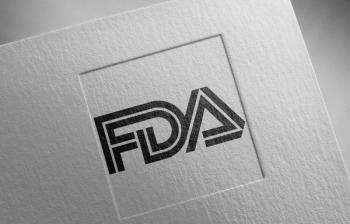
Evaluating Evidence in HR+/HER2- Breast Cancer Treatment Landscape
Drs Vinokurov and McHayleh discuss the impact of clinical trials on the treatment landscape of HR+/HER2- breast cancer.
Episodes in this series

Wassim McHayleh, MD, MBA, FACP: We believe in clinical trials. In order to develop new treatment options, we need to enroll patients in clinical trials. Good, well-run clinical trials are usually global, with appropriate patient representation. Those trials can change the practice and lead to new hopes for our patients. A well-known challenge for all of us is that there’s a [lack of] ethnic and racial minority representation in clinical trials. For example, with the recent approval of T-DXd [trastuzumab deruxtecan] in HER2 low, or the DESTINY-Breast03 trial—because HER2 low represents our topic for today—this is a new treatment option that was approved for HR [hormone receptor]-positive, HER2-negative patients. In the DESTINY-Breast04 trial, African Americans were underrepresented. The trial included a larger number of European and Asian patients.
We mitigate this by increasing enrollment in clinical trials at community sites. Every time I meet with drug companies and MSLs [medical science liaisons] to discuss clinical trials, I always present our site as very diverse because of the representation here in central Florida, where we have a well-diversified population with a high rate of enrollment in clinical trials. That’s exactly what we need. We need to [use more] sites with underrepresented populations to enrich clinical trials.
Pharmacists can help significantly because they are involved in clinical trials in our practice. They’re involved in the treatment, initiating treatment, and monitoring toxicities, so they’re instrumental in monitoring toxicities and initiating treatments while patients are on clinical trials. Alisa can speak more on their role in the clinical trial domain.
Alisa Vinokurov, PharmD: Pharmacists are involved in clinical trials with patients with breast cancer. We have a dedicated research team. It includes 3 pharmacists who are dedicated strictly to these clinical trials, and 3 pharmacy technicians who mix those drugs, depending on where the patient falls in the treatment protocols. We also have nurses and coordinators who take care of the initiation and facilitation of these clinical trials. There’s a very large consensus. Specifically, Dr McHayleh has a lot of patients with breast cancer in clinical trials, so we see a large volume in the clinics.
As Dr McHayley mentioned, as pharmacists, [we focus on] toxicity management. When we hear that patients are feeling effects that we know are part of the protocol being studied, we’re there to manage, maybe decrease doses, bring that up to the oncologist, and make sure we have the patient feeling well and not dealing with all these adverse effects, especially in a clinical trial in which they have no idea what they’re getting. That’s where the pharmacist comes in. It’s an important role to keep broadening.
Wassim McHayleh, MD, MBA, FACP: [They] work very closely with the research team, research coordinators, and research nurse in grading toxicities, drug delivery, and dosing adjustments.
Transcript edited for clarity.
Newsletter
Stay informed on drug updates, treatment guidelines, and pharmacy practice trends—subscribe to Pharmacy Times for weekly clinical insights.



























